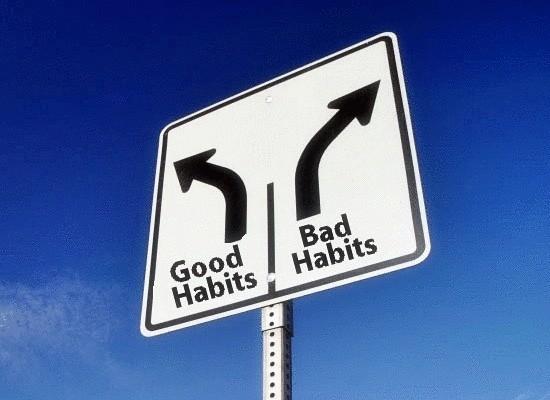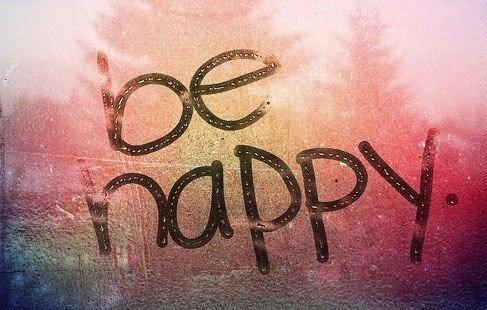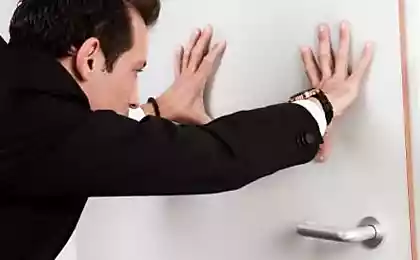761
36 steps to the formation of healthy habits
Nine million two hundred seventy thousand seven hundred ten
Your attention is presented 36 lessons which will help to abandon bad habits and form good.
Small changes quickly become the norm. Imagine you were in another country. Unfamiliar language, unfamiliar food, strange people around. To adapt it to very difficult. But small changes quickly, they are almost invisible and "painless" are becoming the norm.
It is easier to start small. Radical changes require a lot of effort (constant self-control). So better to start small. So, the desire to develop the habit of going to the gym may well remain an idea. But it will be easier to implement if you start with a few exercises a day.
Small changes are easier to stick to. Setting a "global" problem (exercise every day for 30 minutes minimum), you might be eager to seek him... first. But the accumulation of daily fatigue, the enthusiasm will subside.
Habits are caused by triggers.
A trigger is a set of conditions that initiates the action. For example, some people coming to work, first turn on the computer, and then automatically check the mail. In this case, the inclusion of computer – trigger, and checking email is a habit. It's kind of a "reflex" – turned on the computer, then have to check the mail.

Habits with a variable or multiple triggers – stronger. For example, Smoking provoke, as a rule, several triggers (stress, alcohol, a desire to "communicate"). To get rid of this habit difficult. It is also hard not to get angry at criticism. Latest – unstable trigger, you don't know at what point she'll "catch".
First, accustom yourself to simple rituals. Start with innovations that require only a few minutes a day and like you (for example, the habit of healthy eating can begin with a simple ritual to drink in the morning, fresh juice). Simple rituals that train the ability to follow the habits and increase credibility.
Trust yourself. If people promise something and not fulfill, whether it will undermine your credibility? For sure, Yes. And if a man always keeps his word, increases your respect for him? The same promises to myself. If you yell, vowing not to eat after 18 hours, the limit of trust to itself is gradually disappearing. And on the contrary: the more often you prove yourself able to keep a lot of money, the greater the level of "santovenia" and a chance to follow complex habits.

Water wears away the stone. We want everything at once. So often people type in daily from 10 new habits, believing that this life will quickly become better. But in the end, they can't control all the innovations and, getting up on one, throw the rest. It is better to change the lives little by little, slowly, but, after a while, you will see how global changes have led these steps.
No matter what to change first. Life is not a sprint. Life is a marathon. Remember, when you wrestle with the dilemma: what is more important to run in the mornings or to quit Smoking. In fact, no matter what habits to start. Eventually, you will reach each of them. But you should start with one that causes less resistance.
Energy and sleep. The first is directly proportional to the second. If you are not refilled, you do not have sufficient energy to follow the planned rituals. The more you tired the more you will "boil the pot" (I had too hard a day today can not learn new foreign words).
The collapse routine = "breakdown". People often refuse to follow certain habits at the weekend, during vacation, when suddenly guests arrive. In short, when the crumbling of their daily routines. This is due either to the fact that the trigger that starts the mechanism of repetition the habit is not triggered (for example, you are meditating after your morning coffee, a party, where you were, this drink prefer tea); or with the fact that due to the regime change there is no time/strength to follow it (on vacation you walked 17 minutes, does it still need to be wrung out?).

Forewarned is forearmed. Another common cause for waiver of certain habits – the inability to anticipate the difficulties that will arise in the way. For example, you decided to eat less sweets and go to visit. You should anticipate that the table would be a lot of temptations, and to take care of the food for themselves. Otherwise, "failure" is almost inevitable.
Watch your thoughts. We are all talking to ourselves. This happens unconsciously, and that's fine. Bad, if you have a head spinning with negative thoughts: "I can't", "it's too hard", "why I myself was somewhat limited?", etc. be careful what you say about yourself and catch yourself in alarmist talk, chase them away.
Sees the root, do not go on about rush. The next time you want to smoke, or to eat at night or "score" for the workout, try not to reach immediately for the lighter or the handle of the refrigerator. Stop and think about what triggered this desire? Or is it so bad as it seems? Taking a break and digging in yourself, you will be able to resist the temptation.
Motivation. Compare: "I will not eat fat to lose weight" and "I will not eat fat to lose weight and live a long healthy life." Some of these motives are stronger, in your opinion? If a person just wants to lose weight (and it has no problems in his personal life or his career), it will be hard to follow diet habits. But if he knows that depends on his health and longevity, his motivation will be much more powerful. Identify your motivation and write it down on paper. Re-read whenever temptation grabs you.
Feedback. Which is easier: to lie on the sofa or exercise? Of course the first. Therefore, this activity causes inside positive feedback. In order to successfully follow the habit you need to form positive feedback on it. This will help the responsibility. For example, invite a friend to run together (called a meeting – accepted the obligations). With this you get the pleasure of communicating and, as a consequence, positive feedback from doing the habit.
Competition is the catalyst of progress. Allow friends to catch yourself "weak". A little for a whole week not eating sugar? A little 6 weeks to go to the gym? Throwing someone (and truth itself) call, it is easier to train yourself to follow a particular habit. In addition, competition also stimulate responsibility and positive feedbacks (see previous paragraph).
There are no exceptions. "One cupcake will be nothing" – following the logic of "just this once and no more," you almost surrender to their weaknesses. "Once" will be another, and another, and... Making exceptions, you create a mindset that favors is fine (not every day, of course!). But in fact, it undermines self-trust.
Habit – reward, not punishment. We should not accept the introduction of new, positive habits like hard work. If you treat training as a service, you get negative feedback and you for a long time is not enough. But if you find a way to get pleasure from activities (such as sports which you really like), the feedback will be positive. Change your attitude to the habits, because they are the reward, not a punishment.
The more new habits at the same time, the higher the probability of zafeylit. Try an experiment: try to introduce 5 new habits. Monitor how much time you can last. Follow one new ritual much easier than several. It is more rational to focus on one habit, and when it will reach automaticity, move to the next.

Distraction is inevitable. Like all new beginning following the particular habit inspiring – you are full of energy. But sooner or later the self-control falls. You don't have to think about the habits 24 hours a day, you just need to remember them once a day. Deviations from the target are unavoidable, but if you missed a workout, don't quit sports. Revise your motivation and focus again on your goal.
Use the blog. Publicity perfectly disciplinarum. If you blog, or social.networks declare that sat on a diet and promise to every two weeks put photos standing on the scales, you have a responsibility. In the end, who wants to lose face in front of friends?
Learn from the mistakes. Breakdowns are inevitable and need to be able to draw lessons from them. Each person is different. What works for some, may not suit another. And if you don't try you'll never know what worked for you. Error is the method to know yourself. When you make mistakes, you learn something new, and thus become better.
Attitude determines the outcome. As already mentioned, the "break" everything. The question is, what do they do after? Having failed, people are prone to self-flagellation. This is normal. However, guilt is often an obstacle to learn a lesson and move on. Remember: people who are successful in forming healthy habits, it is not those who are wrong, and those who failed, find the strength to continue to change my life.

Adapt or die. Habits are taught to adapt and fit. Forgetting to perform a particular ritual? Think about what's wrong and fix it. Don't like his performance? Think, what is the reason for animosity, and eliminate it. In my head swarming thoughts-parasites ("why am I doing this?"), get rid of them.
Get support. Who do you go to when you are low? Whose opinion matters to you? The support of these people is very important. Spouse(s), best friend, colleague at work – someone should tell you in a minute when you are ready to send everything to the devil: "Hold on! You will do it!".
Don't limit yourself. Most of the people can be heard: "I can't give up sugar!", "I can't live without meat!". And they really can't... yet continue to think so. In fact, there's nothing you can'T do that. But if you continue to believe that sugar affects your life, you really can't refuse a cupcake.
Environment. It should help you. Decided to give up sweets? Don't buy it. And tell friends not to do it. Ask friends not to smoke when you if you are struggling with this harmful habitual. You need to create an environment that will help you to change.

Minimize "entry barriers". Do not allow yourself to procrastinate. Going for a run, you can think about how hard it will be, how long it will take, as it will be cold... But you can just lace up your sneakers and run. Get rid of mental barriers. To meditate, you just need to take a comfortable position; to write is to open the text editor.
Plan forced interruptions. There are times when follow the plan impossible. For example, you are going on vacation to the village and there is no pool where you tried daily walk over the past months. OK. But you should not take this as a reason to leave. Clearly define the date when you will be able to return to this habit. And come back to it when that day comes.
Habits depend on the situation. As already mentioned, the implementation of the habits start triggers, which are often influenced by the environment. Life is fast and dynamic. If your trigger is yoga, shower, phone call, and when you just came out of the bathroom, can unsettle you, switch to other things. This should be ready.
The best the enemy of the good. Paradoxically, bad habits are often necessary to us. For some, cigarette is a way to relieve stress, and if you lose this "antidepressant", it will start to break on close. It is important to understand what caused a bad habit, and try to find her a more healthy alternative.
Be kinder to yourself. Be angry at yourself, blame yourself when you can't, that's not helpful. At all. Do not forget to praise yourself even for microspace and regularly remind yourself that you are walking on a thorny road called "the struggle", trying to become happier, and Oh so easy.
Perfectionism is evil. People often strive for perfection, but it's a stick in the wheel of progress. If you find that do not follow this or that habit, because the circumstances of this imperfect (not meditate, as there is no suitable music), forget about perfectionism and just do what you must. A little bad is better than nothing.
Tandem. The two of us (friend, colleague) is much easier to start something or to adhere to certain habits. So, if you are going to go on a diet, and offer the spouse(spouse) to join. You will be surprised how much easier things will go.
Changing eating habits is a way of self-discovery. Habits are not only a way to change the life, but also a tool of self-discovery. Working on rooting of in your life a particular habits, you will learn a lot about yourself. What motivates you, how rational you are, what internal and external rewards "work" for you, etc. Just a few months of changing habits, you learn more about yourself than 10 years before. Thus, to change habits is useful, regardless of will you like it or not.
Source: brainswork.ru
Your attention is presented 36 lessons which will help to abandon bad habits and form good.
Small changes quickly become the norm. Imagine you were in another country. Unfamiliar language, unfamiliar food, strange people around. To adapt it to very difficult. But small changes quickly, they are almost invisible and "painless" are becoming the norm.
It is easier to start small. Radical changes require a lot of effort (constant self-control). So better to start small. So, the desire to develop the habit of going to the gym may well remain an idea. But it will be easier to implement if you start with a few exercises a day.
Small changes are easier to stick to. Setting a "global" problem (exercise every day for 30 minutes minimum), you might be eager to seek him... first. But the accumulation of daily fatigue, the enthusiasm will subside.
Habits are caused by triggers.
A trigger is a set of conditions that initiates the action. For example, some people coming to work, first turn on the computer, and then automatically check the mail. In this case, the inclusion of computer – trigger, and checking email is a habit. It's kind of a "reflex" – turned on the computer, then have to check the mail.

Habits with a variable or multiple triggers – stronger. For example, Smoking provoke, as a rule, several triggers (stress, alcohol, a desire to "communicate"). To get rid of this habit difficult. It is also hard not to get angry at criticism. Latest – unstable trigger, you don't know at what point she'll "catch".
First, accustom yourself to simple rituals. Start with innovations that require only a few minutes a day and like you (for example, the habit of healthy eating can begin with a simple ritual to drink in the morning, fresh juice). Simple rituals that train the ability to follow the habits and increase credibility.
Trust yourself. If people promise something and not fulfill, whether it will undermine your credibility? For sure, Yes. And if a man always keeps his word, increases your respect for him? The same promises to myself. If you yell, vowing not to eat after 18 hours, the limit of trust to itself is gradually disappearing. And on the contrary: the more often you prove yourself able to keep a lot of money, the greater the level of "santovenia" and a chance to follow complex habits.

Water wears away the stone. We want everything at once. So often people type in daily from 10 new habits, believing that this life will quickly become better. But in the end, they can't control all the innovations and, getting up on one, throw the rest. It is better to change the lives little by little, slowly, but, after a while, you will see how global changes have led these steps.
No matter what to change first. Life is not a sprint. Life is a marathon. Remember, when you wrestle with the dilemma: what is more important to run in the mornings or to quit Smoking. In fact, no matter what habits to start. Eventually, you will reach each of them. But you should start with one that causes less resistance.
Energy and sleep. The first is directly proportional to the second. If you are not refilled, you do not have sufficient energy to follow the planned rituals. The more you tired the more you will "boil the pot" (I had too hard a day today can not learn new foreign words).
The collapse routine = "breakdown". People often refuse to follow certain habits at the weekend, during vacation, when suddenly guests arrive. In short, when the crumbling of their daily routines. This is due either to the fact that the trigger that starts the mechanism of repetition the habit is not triggered (for example, you are meditating after your morning coffee, a party, where you were, this drink prefer tea); or with the fact that due to the regime change there is no time/strength to follow it (on vacation you walked 17 minutes, does it still need to be wrung out?).

Forewarned is forearmed. Another common cause for waiver of certain habits – the inability to anticipate the difficulties that will arise in the way. For example, you decided to eat less sweets and go to visit. You should anticipate that the table would be a lot of temptations, and to take care of the food for themselves. Otherwise, "failure" is almost inevitable.
Watch your thoughts. We are all talking to ourselves. This happens unconsciously, and that's fine. Bad, if you have a head spinning with negative thoughts: "I can't", "it's too hard", "why I myself was somewhat limited?", etc. be careful what you say about yourself and catch yourself in alarmist talk, chase them away.
Sees the root, do not go on about rush. The next time you want to smoke, or to eat at night or "score" for the workout, try not to reach immediately for the lighter or the handle of the refrigerator. Stop and think about what triggered this desire? Or is it so bad as it seems? Taking a break and digging in yourself, you will be able to resist the temptation.
Motivation. Compare: "I will not eat fat to lose weight" and "I will not eat fat to lose weight and live a long healthy life." Some of these motives are stronger, in your opinion? If a person just wants to lose weight (and it has no problems in his personal life or his career), it will be hard to follow diet habits. But if he knows that depends on his health and longevity, his motivation will be much more powerful. Identify your motivation and write it down on paper. Re-read whenever temptation grabs you.
Feedback. Which is easier: to lie on the sofa or exercise? Of course the first. Therefore, this activity causes inside positive feedback. In order to successfully follow the habit you need to form positive feedback on it. This will help the responsibility. For example, invite a friend to run together (called a meeting – accepted the obligations). With this you get the pleasure of communicating and, as a consequence, positive feedback from doing the habit.
Competition is the catalyst of progress. Allow friends to catch yourself "weak". A little for a whole week not eating sugar? A little 6 weeks to go to the gym? Throwing someone (and truth itself) call, it is easier to train yourself to follow a particular habit. In addition, competition also stimulate responsibility and positive feedbacks (see previous paragraph).
There are no exceptions. "One cupcake will be nothing" – following the logic of "just this once and no more," you almost surrender to their weaknesses. "Once" will be another, and another, and... Making exceptions, you create a mindset that favors is fine (not every day, of course!). But in fact, it undermines self-trust.
Habit – reward, not punishment. We should not accept the introduction of new, positive habits like hard work. If you treat training as a service, you get negative feedback and you for a long time is not enough. But if you find a way to get pleasure from activities (such as sports which you really like), the feedback will be positive. Change your attitude to the habits, because they are the reward, not a punishment.
The more new habits at the same time, the higher the probability of zafeylit. Try an experiment: try to introduce 5 new habits. Monitor how much time you can last. Follow one new ritual much easier than several. It is more rational to focus on one habit, and when it will reach automaticity, move to the next.

Distraction is inevitable. Like all new beginning following the particular habit inspiring – you are full of energy. But sooner or later the self-control falls. You don't have to think about the habits 24 hours a day, you just need to remember them once a day. Deviations from the target are unavoidable, but if you missed a workout, don't quit sports. Revise your motivation and focus again on your goal.
Use the blog. Publicity perfectly disciplinarum. If you blog, or social.networks declare that sat on a diet and promise to every two weeks put photos standing on the scales, you have a responsibility. In the end, who wants to lose face in front of friends?
Learn from the mistakes. Breakdowns are inevitable and need to be able to draw lessons from them. Each person is different. What works for some, may not suit another. And if you don't try you'll never know what worked for you. Error is the method to know yourself. When you make mistakes, you learn something new, and thus become better.
Attitude determines the outcome. As already mentioned, the "break" everything. The question is, what do they do after? Having failed, people are prone to self-flagellation. This is normal. However, guilt is often an obstacle to learn a lesson and move on. Remember: people who are successful in forming healthy habits, it is not those who are wrong, and those who failed, find the strength to continue to change my life.

Adapt or die. Habits are taught to adapt and fit. Forgetting to perform a particular ritual? Think about what's wrong and fix it. Don't like his performance? Think, what is the reason for animosity, and eliminate it. In my head swarming thoughts-parasites ("why am I doing this?"), get rid of them.
Get support. Who do you go to when you are low? Whose opinion matters to you? The support of these people is very important. Spouse(s), best friend, colleague at work – someone should tell you in a minute when you are ready to send everything to the devil: "Hold on! You will do it!".
Don't limit yourself. Most of the people can be heard: "I can't give up sugar!", "I can't live without meat!". And they really can't... yet continue to think so. In fact, there's nothing you can'T do that. But if you continue to believe that sugar affects your life, you really can't refuse a cupcake.
Environment. It should help you. Decided to give up sweets? Don't buy it. And tell friends not to do it. Ask friends not to smoke when you if you are struggling with this harmful habitual. You need to create an environment that will help you to change.

Minimize "entry barriers". Do not allow yourself to procrastinate. Going for a run, you can think about how hard it will be, how long it will take, as it will be cold... But you can just lace up your sneakers and run. Get rid of mental barriers. To meditate, you just need to take a comfortable position; to write is to open the text editor.
Plan forced interruptions. There are times when follow the plan impossible. For example, you are going on vacation to the village and there is no pool where you tried daily walk over the past months. OK. But you should not take this as a reason to leave. Clearly define the date when you will be able to return to this habit. And come back to it when that day comes.
Habits depend on the situation. As already mentioned, the implementation of the habits start triggers, which are often influenced by the environment. Life is fast and dynamic. If your trigger is yoga, shower, phone call, and when you just came out of the bathroom, can unsettle you, switch to other things. This should be ready.
The best the enemy of the good. Paradoxically, bad habits are often necessary to us. For some, cigarette is a way to relieve stress, and if you lose this "antidepressant", it will start to break on close. It is important to understand what caused a bad habit, and try to find her a more healthy alternative.
Be kinder to yourself. Be angry at yourself, blame yourself when you can't, that's not helpful. At all. Do not forget to praise yourself even for microspace and regularly remind yourself that you are walking on a thorny road called "the struggle", trying to become happier, and Oh so easy.
Perfectionism is evil. People often strive for perfection, but it's a stick in the wheel of progress. If you find that do not follow this or that habit, because the circumstances of this imperfect (not meditate, as there is no suitable music), forget about perfectionism and just do what you must. A little bad is better than nothing.
Tandem. The two of us (friend, colleague) is much easier to start something or to adhere to certain habits. So, if you are going to go on a diet, and offer the spouse(spouse) to join. You will be surprised how much easier things will go.
Changing eating habits is a way of self-discovery. Habits are not only a way to change the life, but also a tool of self-discovery. Working on rooting of in your life a particular habits, you will learn a lot about yourself. What motivates you, how rational you are, what internal and external rewards "work" for you, etc. Just a few months of changing habits, you learn more about yourself than 10 years before. Thus, to change habits is useful, regardless of will you like it or not.
Source: brainswork.ru























